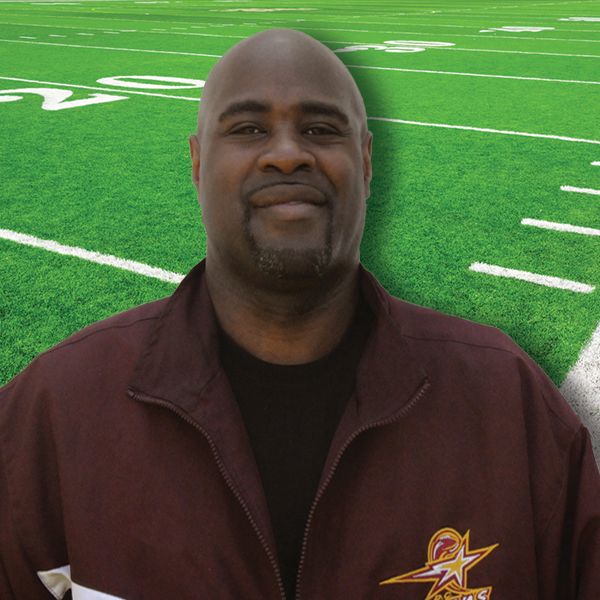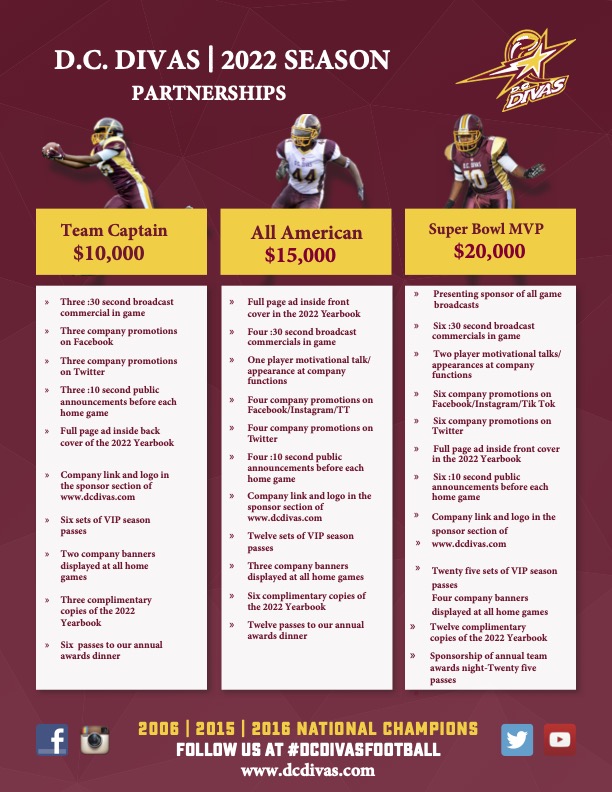Coach Eric Evans
| Season(s) Coaching the Divas: 2009, 2011-2013, 2015-2016 Co-Offensive Coordinator/Quarterbacks Coach – 2016 Co-Offensive Coordinator – 2015 Offensive Coordinator – 2012-2013 Quarterbacks/Wide Receivers Coach – 2011 Quarterbacks Coach – 2009 Other Coaching Experience: Playing Experience: |
|
Coach Eric Evans Q&A Why did you decide to get into coaching after your playing career was over? How did you find out about the D.C. Divas and come to coach for us? In 2008, Ally and my wife and I were at a wedding for one of their friends. We were sitting there at the wedding reception, and Ally started talking about the Divas. She said, “I really need a quarterbacks coach. You should come out and do it!” But I said, “I don’t know if I can dedicate the time to do it right.” Well, we’re at the reception, and a couple of Miller Lites later, she asked me again and I said, “Okay, I’ll look into it.” I was thinking that she wasn’t really serious, that she wasn’t even really going to follow up with me about it. She texted me the next day with the head coach’s phone number! The Divas’ head coach called me the day after that, and years later, I’m still here. How is coaching women’s football different from coaching men? Now, every year, the veteran players get better and quicker at understanding the plays. But every year you have a handful of new rookies who come in and are back where the vets were ten years ago. It’s all about trying to get the rookies up as quickly as possible to where the vets already are. That’s the biggest difference – you have to slow down to build up to the point where everyone knows what is going on. But otherwise, it’s the same. It’s football. Once you get the terminology down and everyone knows what they’re doing, it’s really no different. What is your overall coaching philosophy? How would you like your players to play the game? My philosophy is that I want these players to know almost as much as the coaches about the offense and when to make decisions. I was always taught and coached that if you can make the decisions on the field yourself, it makes us that much better. No coach has ever really won a game from the sidelines, so if you can get the players to the point where they can make decisions on the field, that’s an advantage you have over the defense. I take pride in the fact that we as a staff can get our players to the point where they see the stuff that we see, but they see it quicker because they’re actually out there feeling the flow of the game. My biggest principle is, “Don’t try to force a player to do something they’re uncomfortable with and aren’t prepared for.” An uncomfortable football player hesitates, and you can’t hesitate. That’s what slows you down. If you put players in a position to succeed by making sure they are prepared, the offense will run smoothly. |


